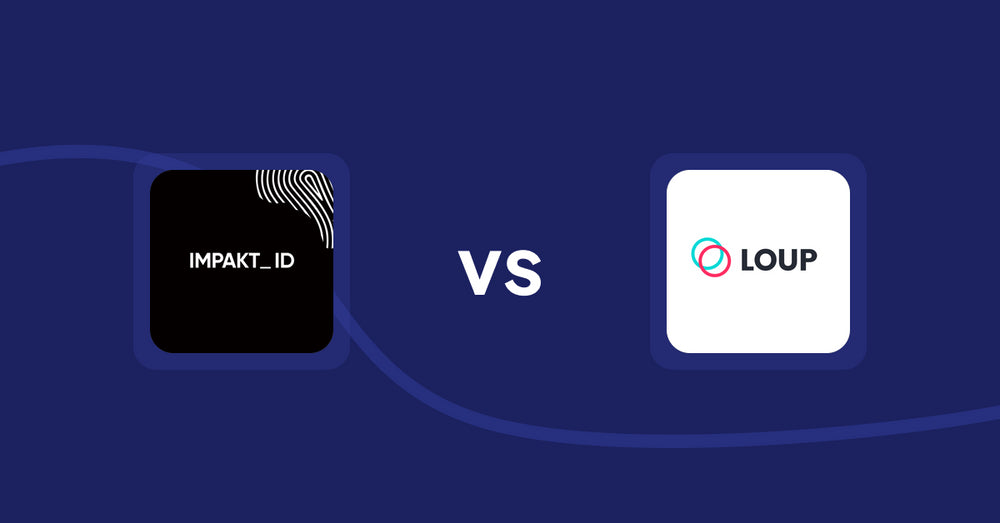Shopify Metafield Apps: Helium Customer Fields vs. Native Metafields

Table of Contents
- Introduction
- How Does Helium Customer Fields Work?
- How Does Native Metafields Work?
- How Much Does Helium Customer Fields Cost?
- How Much Does Native Metafields Cost?
- Cost Analysis: Helium Customer Fields vs. Native Metafields
- User Reviews & Customer Support Insights
- Integration and Compatibility Comparison
- Conclusion
Introduction
In today's digital landscape, the effective management of customer data is crucial for retailers seeking to enhance user experience and drive sales. Metafield apps play a pivotal role in this process by allowing Shopify merchants to harness customer data efficiently and effectively. These applications provide the necessary tools to create tailored experiences, improving customer loyalty and satisfaction.
In this blog post, we will delve into two popular Shopify applications: Helium Customer Fields and Native Metafields. Each of these apps provides noteworthy features, integrations, and capabilities that support merchants in collecting, managing, and leveraging customer data. However, upon closer inspection, Helium Customer Fields seems to offer a more robust and flexible solution for businesses of all sizes.
How Does Helium Customer Fields Work?
Helium Customer Fields is designed to enable Shopify merchants to create personalized customer registration forms and manage comprehensive customer profiles. This flexibility allows businesses to collect valuable first-party data, which can then be integrated into their overall marketing and customer engagement strategies.
Key Features
-
Drag-and-Drop Form Builder: With a user-friendly drag-and-drop interface, merchants can quickly develop unique registration forms tailored to their business needs. This is particularly effective for startups and small businesses needing quick solutions without a steep learning curve.
-
Account Approval and Email Verification: This feature allows merchants to control customer access, making it ideal for businesses targeting B2B clients or wholesale operations. Ensuring your customer base is legitimate fosters trust and reliability.
-
Custom Fields and Auto-Tagging: By utilizing metafields, merchants can easily create custom data fields, such as birthdays or special preferences. Additionally, the auto-tagging functionality allows for the automatic organization of customers into specific groups, facilitating targeted marketing efforts.
-
Conditional Rules: These rules permit merchants to design more complex forms that adapt based on user input. For instance, if a customer indicates interest in a specific product category, relevant follow-up questions can appear, ensuring comprehensive data collection.
-
App Integrations: Helium Customer Fields supports a range of integrations, including Shopify Flow, Zapier, Slack, and various marketing tools. This enhances its versatility and allows for seamless data synchronization across platforms.
Hypothetical Scenarios
Imagine a small pet supply business looking to collect specific information from its customers. With Helium Customer Fields, they can create a form that asks for the type of pet, their name, and special dietary needs. This information could then be used to tailor marketing campaigns effectively and create personalized product recommendations.
In contrast, a larger enterprise might benefit from the advanced features, such as priority support and REST API access available in higher pricing tiers, allowing them to manage more extensive customer data sets efficiently.
How Does Native Metafields Work?
Native Metafields offers a straightforward approach to managing metafields within the Shopify environment. While it provides basic functionality for handling metafields, such as viewing, filtering, and editing data, it lacks the depth and flexibility found in Helium Customer Fields.
Key Features
-
Comprehensive View of Metafields: Native Metafields allows users to view and manage their metafields for various elements like products, customers, and orders. This feature is particularly beneficial for those wanting a quick overview without extensive management capabilities.
-
Import & Export Functions: Users can import or export metafields, facilitating the transfer and updating of data across different records. However, the limitations in export capacity could be a hindrance for businesses with more significant needs.
-
Liquid Code Syntax Retrieval: This allows developers to access and utilize metafield data directly within their shop's Liquid templates.
Business Suitability
For startups seeking a simple way to get started with metafields, Native Metafields might provide just enough functionality. However, as businesses grow and demand more customized solutions, limitations in user experience and advanced features might necessitate a transition to a more comprehensive platform like Helium Customer Fields.
How Much Does Helium Customer Fields Cost?
Cost-efficiency is vital for businesses managing customer data. Helium Customer Fields offers tiered pricing that accommodates businesses of various sizes.
-
Lite Plan ($12/month):
- Features: Access to all standard Shopify fields, account approval, email verification, the ability to edit account pages, email notifications for staff, and synchronization for up to 5,000 customers with two forms.
- Limitations: Limited to basic features.
- Target Audience: Ideal for startups or those testing the waters with metafield applications.
- Additional Costs: No notable extra fees.
-
Pro Plan ($26/month):
- Features: Includes all Lite features plus custom fields, customer auto-tagging, conditional rules, app integrations, synchronization for 10,000 customers, and five forms.
- Limitations: Still has some basic functionalities but adds flexibility.
- Target Audience: Suitable for small to medium-sized businesses aiming to enhance user engagement.
- Additional Costs: None specified.
-
Advanced Plan ($60/month):
- Features: All Pro features along with priority support, REST API access, synchronization for 50,000 customers, and unlimited forms.
- Limitations: Not necessary for most smaller operations.
- Target Audience: Targeted at larger enterprises needing extensive customization and support.
- Additional Costs: No extra fees noted.
It is important to note that you can always reach out to our team and we can create a custom pricing plan to suit your needs and your budget. Schedule a call via this link and we’ll come up with the best solution for you and your business.
How Much Does Native Metafields Cost?
Native Metafields provides a more economical pricing structure but with limited features that may not meet the evolving needs of growing businesses.
-
Starter Plan (Free):
- Features: Provides basic visibility of metafields.
- Limitations: Lacks editing capabilities.
- Target Audience: Suitable for small startups dipping their toes into metafields without commitment.
-
Advanced Plan ($6.99/month):
- Features: All Starter features plus metafield editing and import/export options (up to 500 records).
- Limitations: Limited import/export capabilities compared to competitors.
- Target Audience: Ideal for small businesses looking for slightly more functionality.
-
Professional Plan ($9.99/month):
- Features: Increases import/export limits and includes all Advanced features.
- Limitations: Still constrained in export capabilities.
- Target Audience: Targets growing businesses that require a standardized process for managing metafields.
-
Expert Plan ($15.99/month):
- Features: Enhanced import/export capabilities (up to 5,000 records).
- Limitations: Might not suffice for larger enterprises needing broader functionalities.
- Target Audience: For small to medium enterprises needing more robust data management.
Cost Analysis: Helium Customer Fields vs. Native Metafields
When examining the value proposition, Helium Customer Fields offers significant advantages at every pricing tier. While Native Metafields appears cost-effective at first glance, the breadth of features available with Helium's plans enhances long-term return on investment.
Additionally, with Helium Customer Fields, businesses are not just paying for basic functions; they are investing in a versatile solution that grows with them. For instance, the basic Lite plan includes critical features that most businesses will find beneficial right from the start, whereas Native Metafields tends to remain narrowly focused on metafields management without the broader engagement capabilities.
User Reviews & Customer Support Insights
Is Helium Customer Fields Good?
Helium Customer Fields enjoys a stellar reputation, with an impressive 5-star rating from 64 reviews. Users praise the application's flexibility and the adaptability it offers for tailoring forms to meet specific customer needs. The drag-and-drop builder and various integrations further contribute to a positive user experience.
Is Native Metafields Good?
Native Metafields has also received a perfect 5-star rating from its 7 reviews. Users tend to appreciate the straightforward nature of the app for managing metafields. However, the limited feature set compared to Helium Customer Fields could lead to varying opinions regarding its long-term utility, especially for businesses expecting to scale.
User Preference: Helium Customer Fields or Native Metafields?
In terms of average ratings and user feedback, Helium Customer Fields receives higher acclaim due to its comprehensive features and flexibility. Native Metafields, while adequate, may not meet the needs of users seeking robust functionality and engagement tools. The features of Helium Customer Fields cater to businesses at multiple growth stages, making it a better long-term solution.
Integration and Compatibility Comparison
Helium Customer Fields Integrations
Helium Customer Fields integrates seamlessly with various key tools, including Shopify Flow and Zapier, enhancing the operational efficiencies of businesses by enabling automation and structured workflows.
Native Metafields Integrations
Native Metafields, in contrast, currently does not highlight specific integrations. This limitation may pose challenges in synchronizing workflows across platforms for users looking for comprehensive solutions.
Conclusion
Both Helium Customer Fields and Native Metafields offer valuable solutions for managing metafields within the Shopify ecosystem. However, Helium Customer Fields stands out due to its advanced flexibility, user-friendly design, and extensive feature set, making it a more comprehensive solution for businesses seeking to engage deeply with their customers. With an exceptional rating and a diverse range of functionalities, Helium Customer Fields proves to be the superior choice for managing customer data effectively while supporting growth and responsiveness in today’s competitive landscape.
Still Searching for the Perfect Customization Solution?
Stop searching and start thriving with Accentuate Custom Fields! This powerful metafield management app supercharges Shopify’s native features, giving you the tools to create a truly personalized customer experience.
Why Choose Accentuate Custom Fields?
- Advanced Customization: Unlimited field definitions, logical grouping, and custom layouts make your store one-of-a-kind.
- Enhanced Editor Experience: Effortlessly edit variant metafields, use advanced HTML and markdown editors, and sync field definitions between stores.
- Flexible Management: Import/export capabilities, automatic tagging, and comprehensive support for Metaobjects and versioning.
- 24/7 Support: If you have any questions or need assistance, our team is available around the clock to help with any custom modifications to suit your store.
Join over 12,000 merchants, including top Shopify Plus stores, who trust Accentuate for their customization needs. With a stellar 4.9-star rating, Accentuate is the go-to tool for advanced CMS needs, offering unmatched flexibility and control over your store’s content. Elevate your Shopify store with high-quality content that boosts customer experiences and conversions. Tell your story, showcase your products, and create an engaging customer journey with ease.
Experience the Accentuate difference and watch your Shopify store thrive!
Accentuate vs Competition
Explore how Accentuate Custom Fields stands out. Whether you’re aiming to customise your storefront, streamline operations or improve content management, see how we compare against the competition
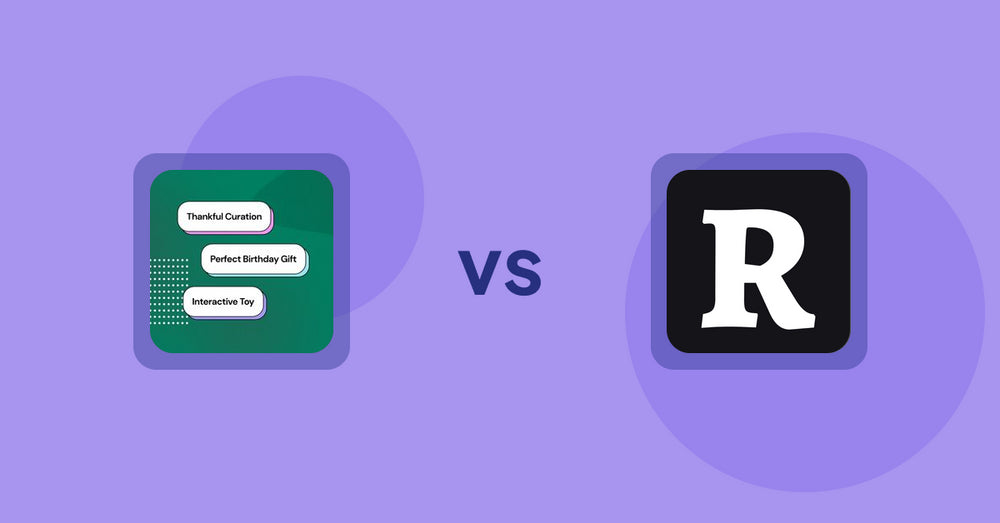
Shopify Product Display Apps: FeatureFrame ‑ Pretty Product vs. AI SEO: Top Product Features
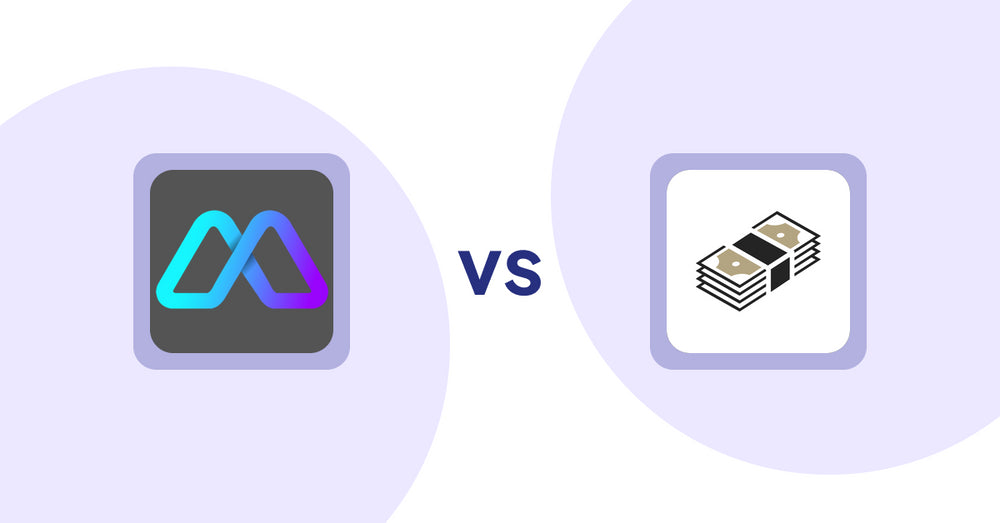
Shopify Product Display Apps: Metadrob: Create Virtual Store vs シンプルクラウドファンディング|お手軽自社クラファン
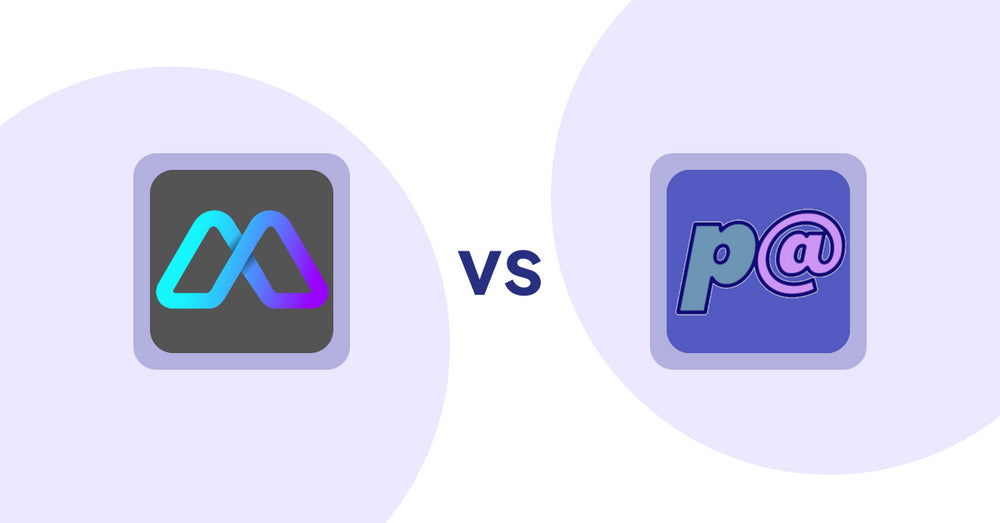
Shopify Product Display Apps: Metadrob: Create Virtual Store vs Parameterizer
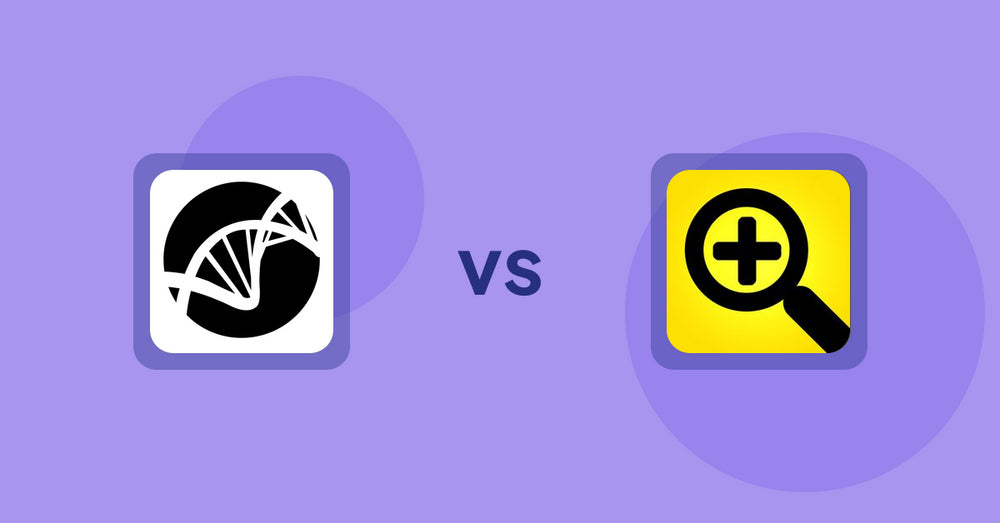
Shopify Product Display Apps: Bike Matrix vs. Fast View: Fastest Quick View
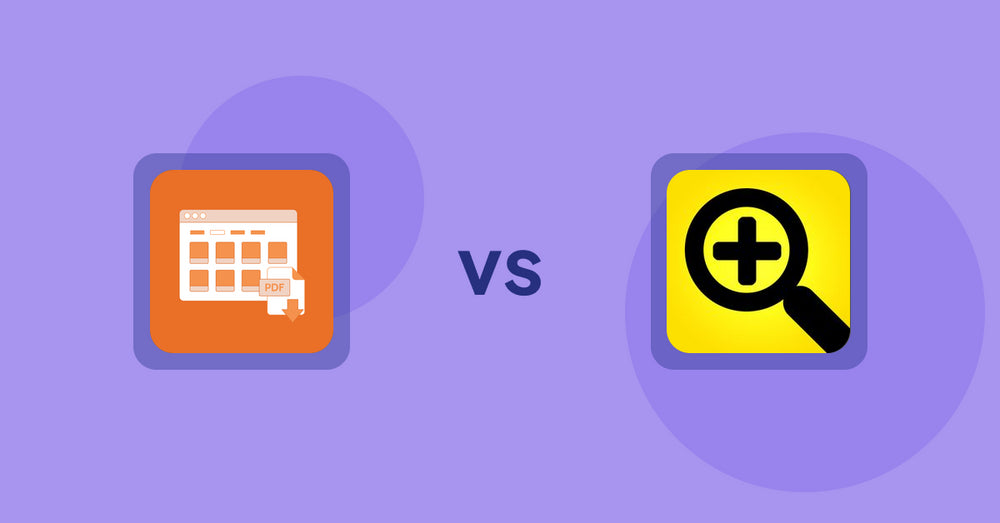
Shopify Product Display Apps: Meetanshi PDF Product Catalog vs Fast View: Fastest Quick View
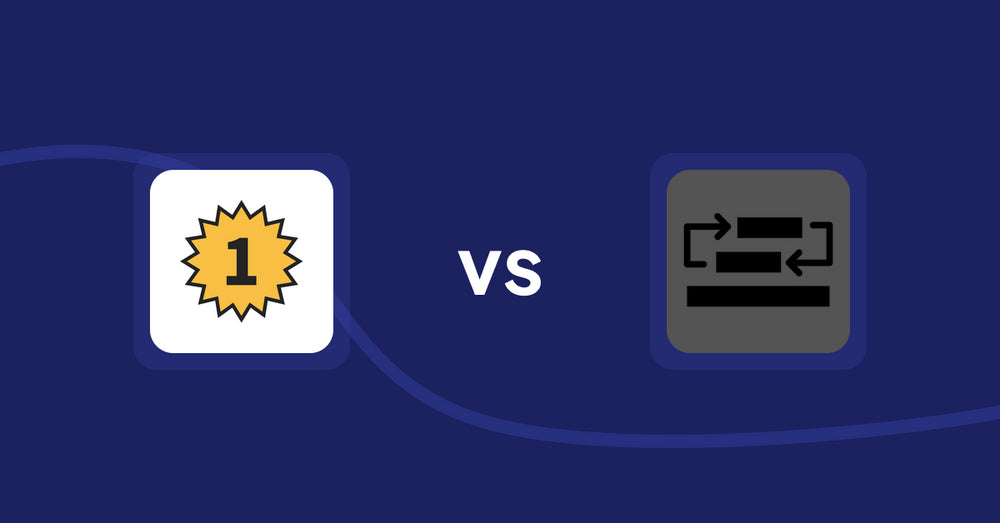
Shopify Product Display Apps: UR: Smart Ranking vs Sortyfi Collection Merchandise
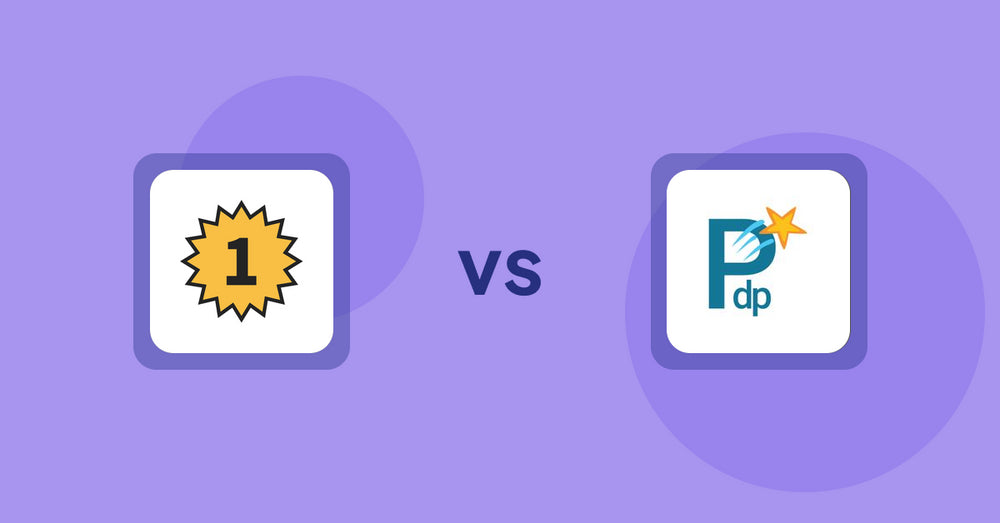
Shopify Product Display Apps: UR: Smart Ranking vs PDP Star
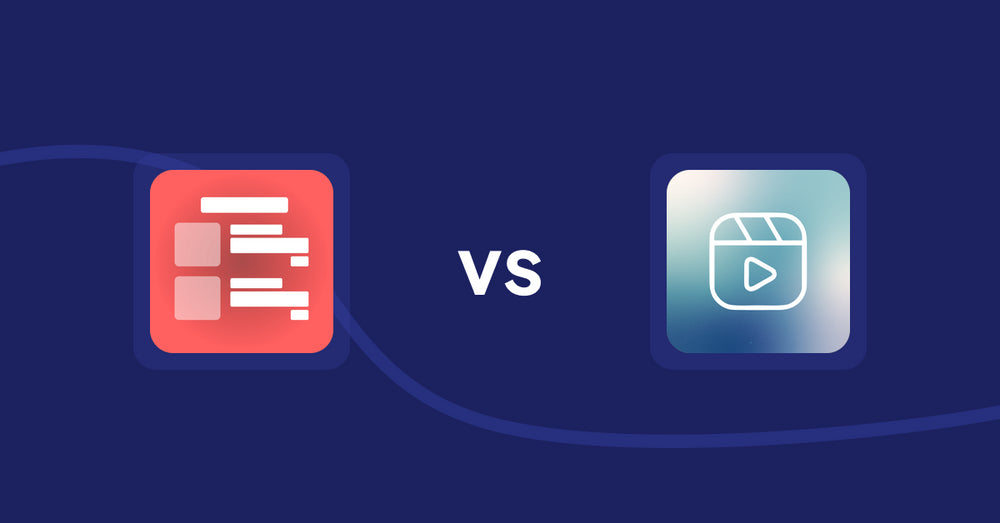
Shopify Product Display Apps: Menulog vs Reelify ‑ Shoppable Reel Video
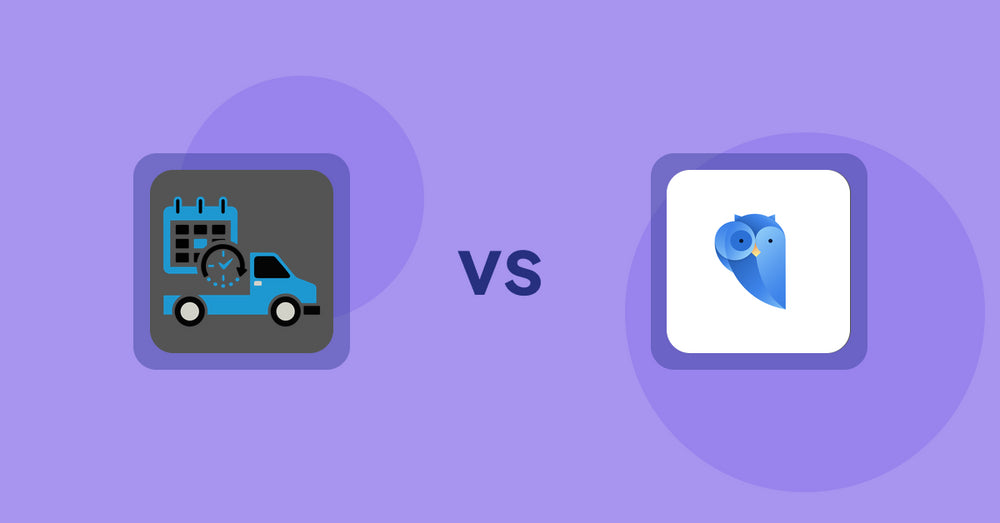
Shopify Product Display Apps: H3 Estimated Delivery vs Findify Search & Merchandise
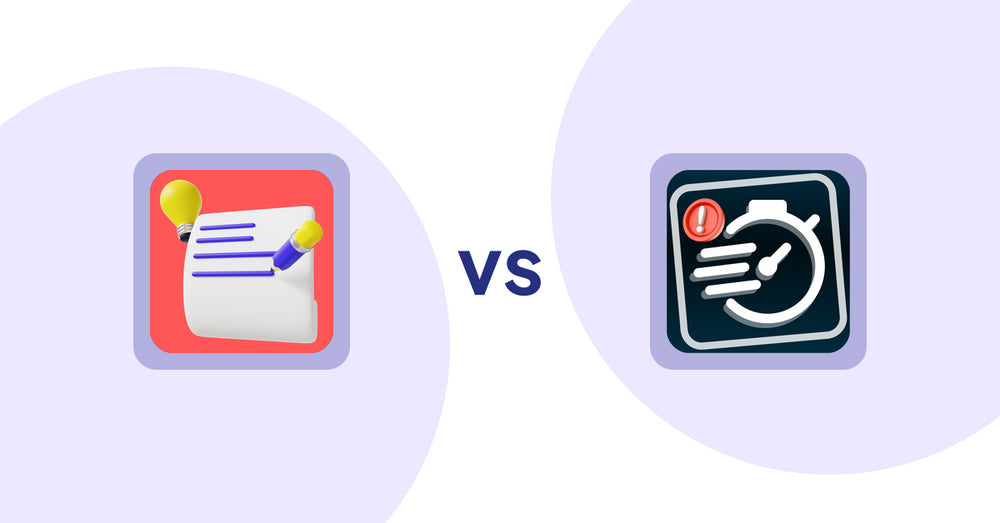
Shopify Product Display Apps: Wordo ‑ ChatGPT AI Description vs Urgency! Low Stock Counter
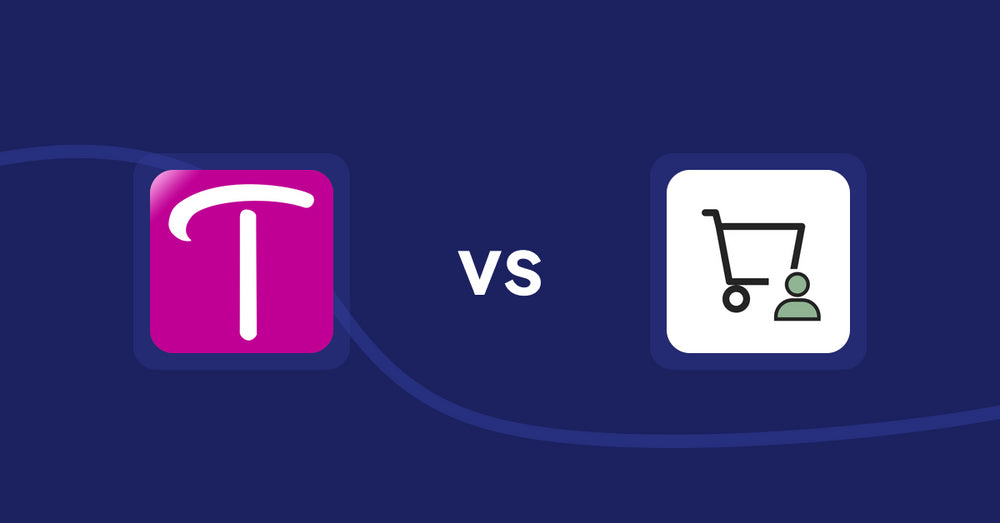
Shopify Product Display Apps: WS Transparency vs シンプル会員注文割引|お手軽ログインセール設定
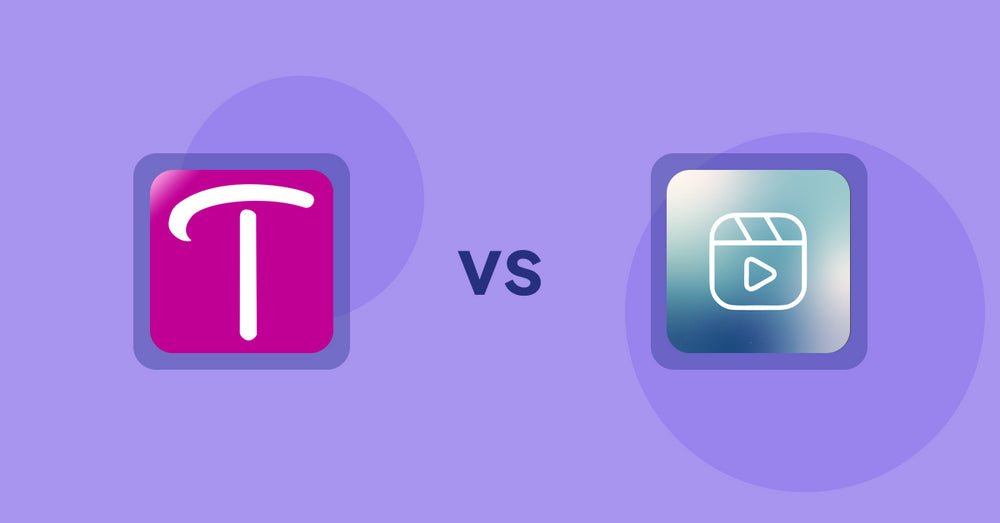
Shopify Product Display Apps: WS Transparency vs Reelify ‑ Shoppable Reel Video
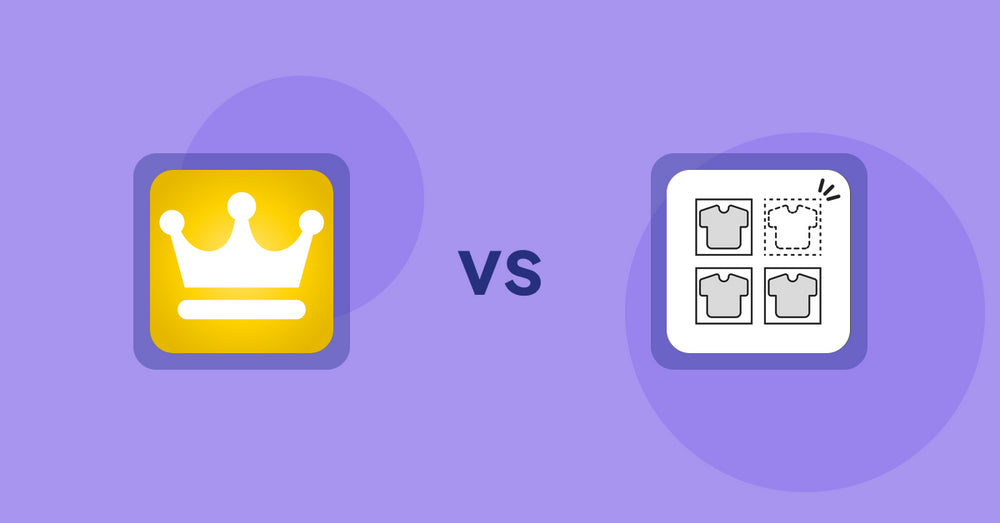
Shopify Product Display Apps: Awesome Ranking vs シンプル売り切れ非表示|在庫切れ商品の表示変更
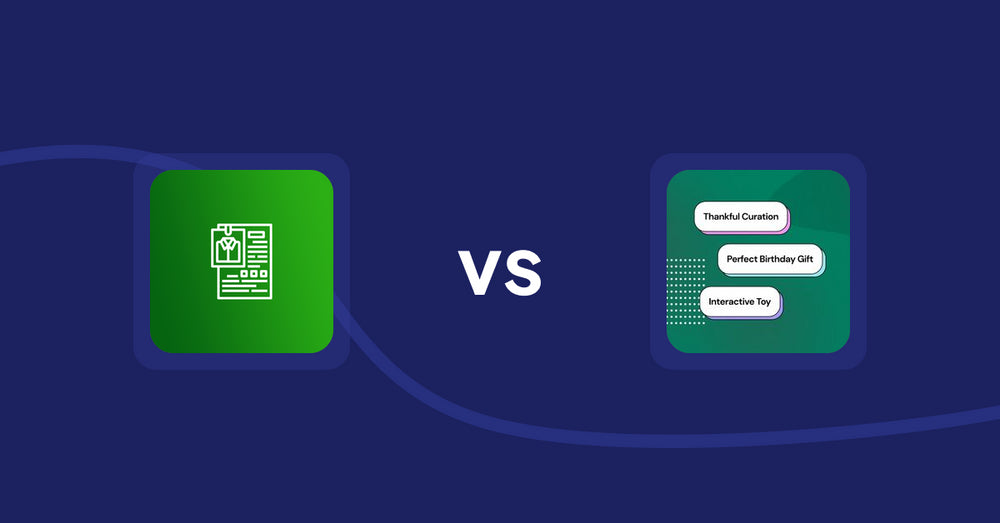
Shopify Product Display Apps: OC Product Size Chart vs FeatureFrame ‑ Pretty Product
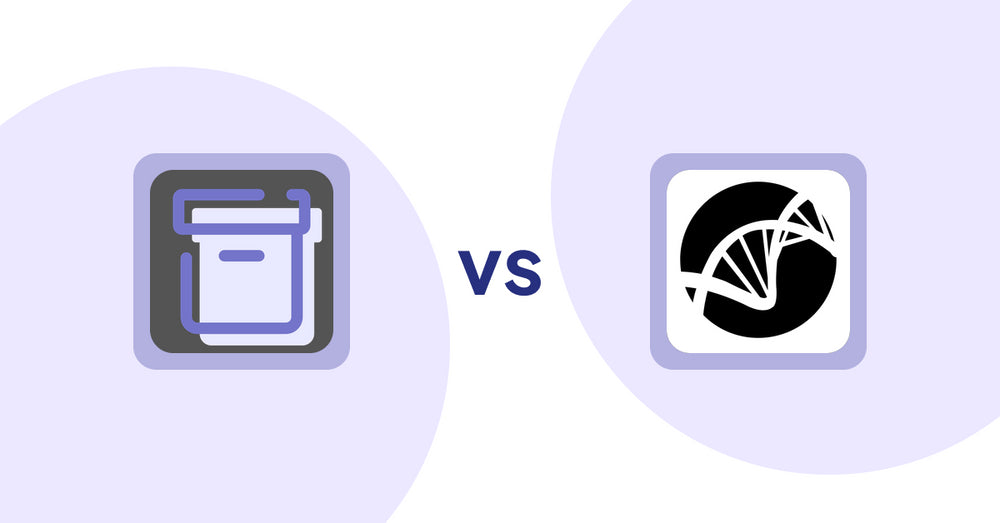
Shopify Product Display Apps: Shelfify vs Bike Matrix
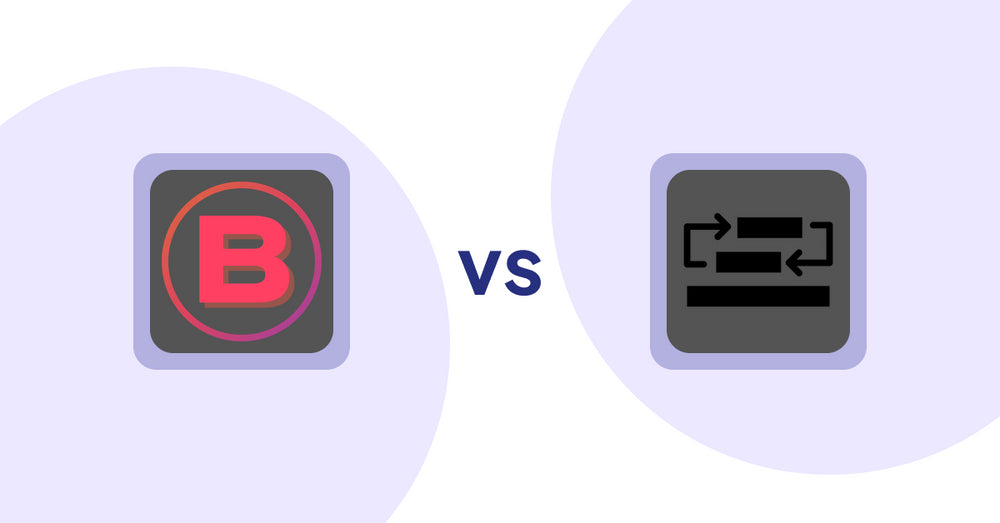
Shopify Product Display Apps: Banter Stories vs Sortyfi Collection Merchandise
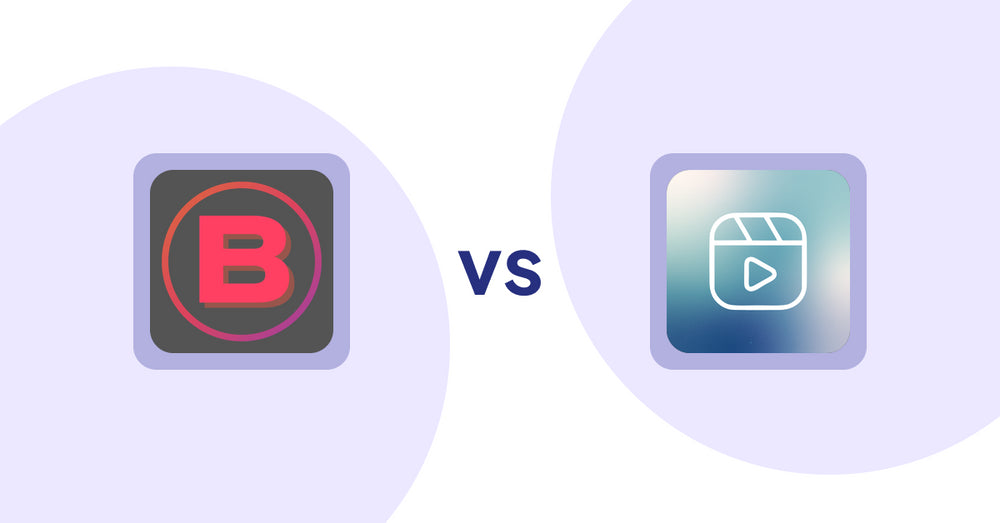
Shopify Product Display Apps: Banter Stories vs. Reelify ‑ Shoppable Reel Video
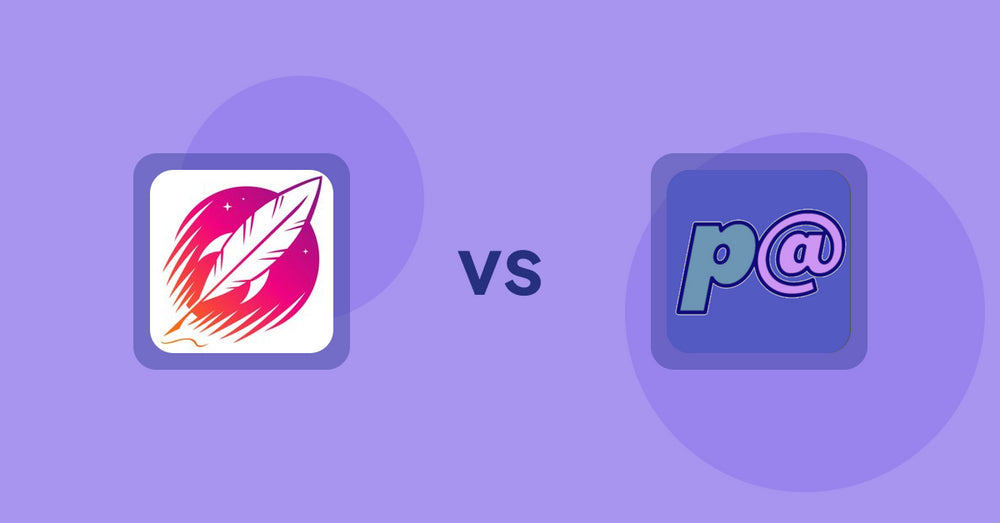
Shopify Product Display Apps: Wordsmith: Content Generator vs Parameterizer

Shopify Product Display Apps: Wordsmith: Content Generator vs Reelify ‑ Shoppable Reel Video
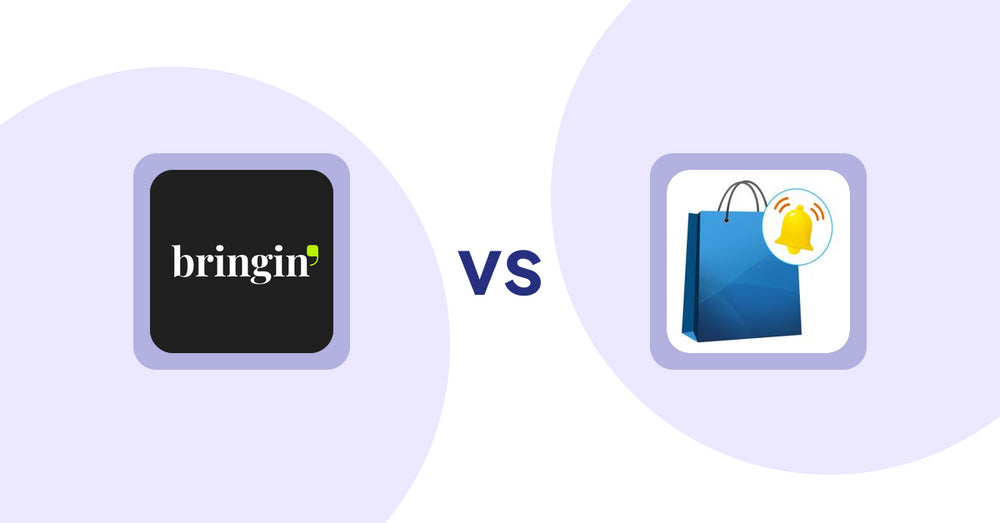
Shopify Product Display Apps: Bringin vs CartBar ‑ Product Purchase Bar
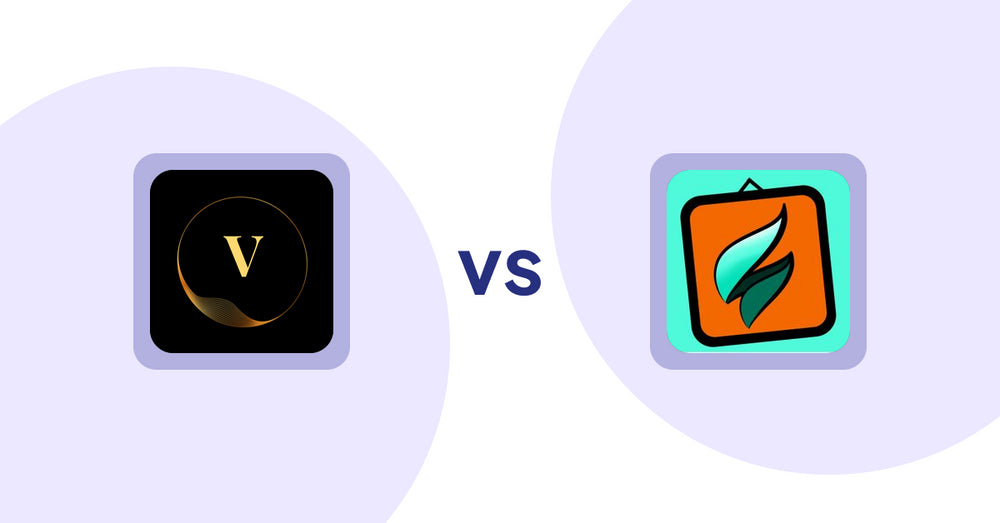
Shopify Product Display Apps: ProductTube vs SMART ‑ Art Product Builder
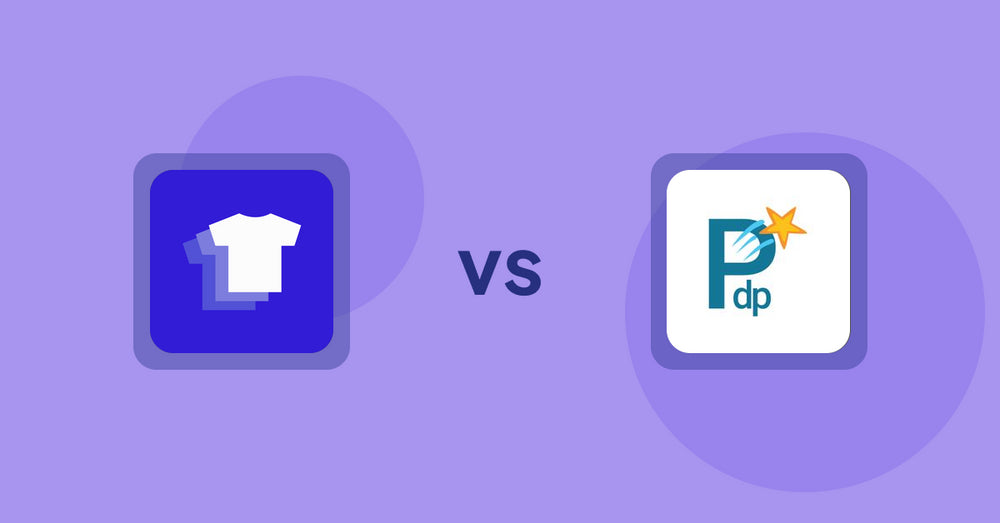
Shopify Product Display Apps: Xpander vs PDP Star
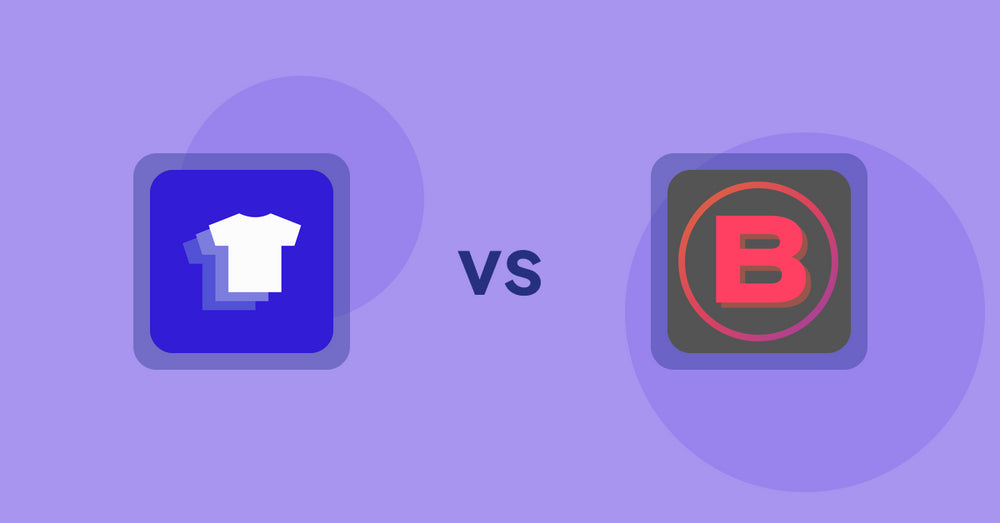
Shopify Product Display Apps: Xpander vs Banter Stories
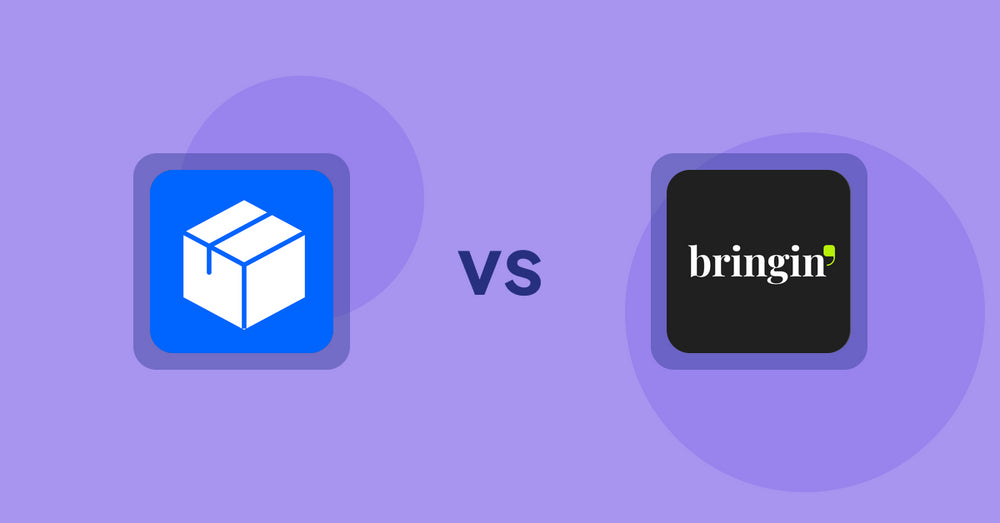
Shopify Product Display Apps: Wonderful Widgets vs Bringin
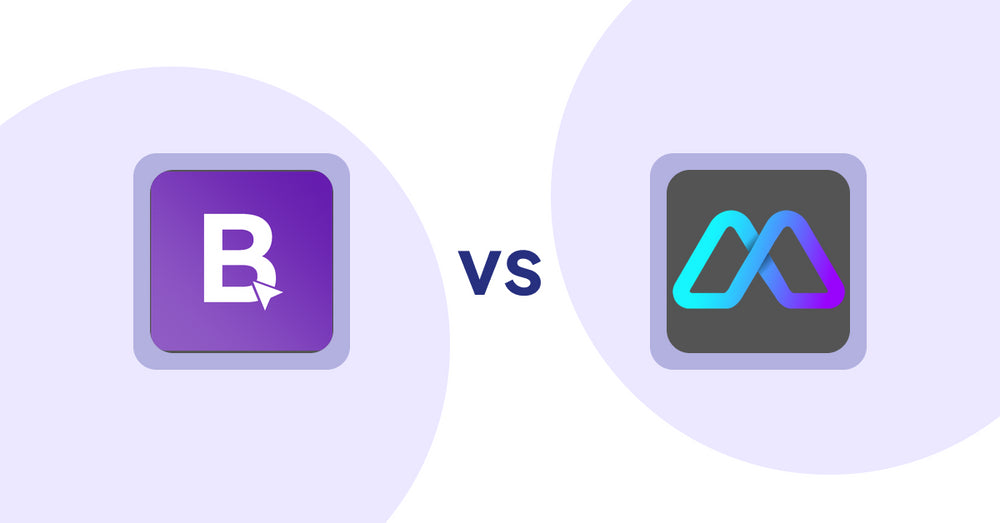
Shopify Product Display Apps: BookE - Rent Property & Service vs Metadrob: Create Virtual Store
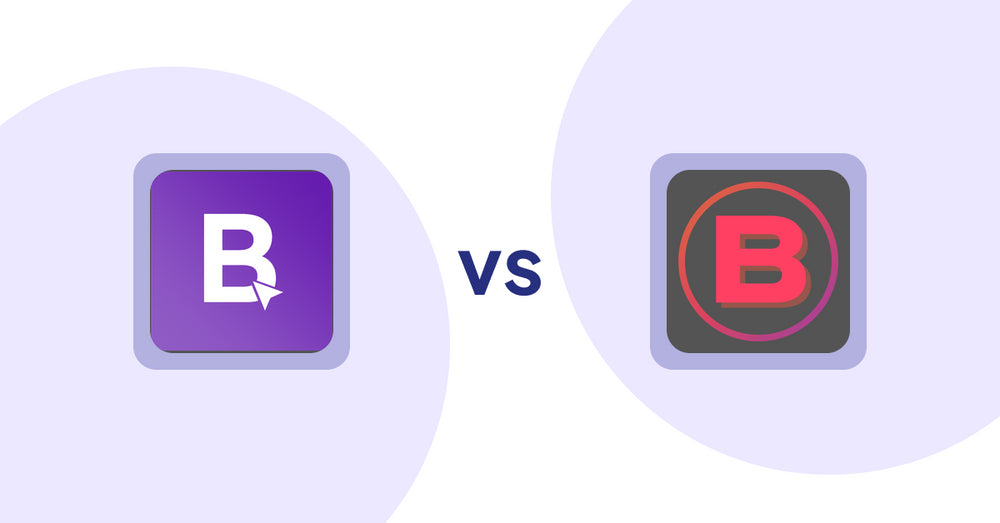
Shopify Product Display Apps: BookE ‑Rent Property & Service vs. Banter Stories
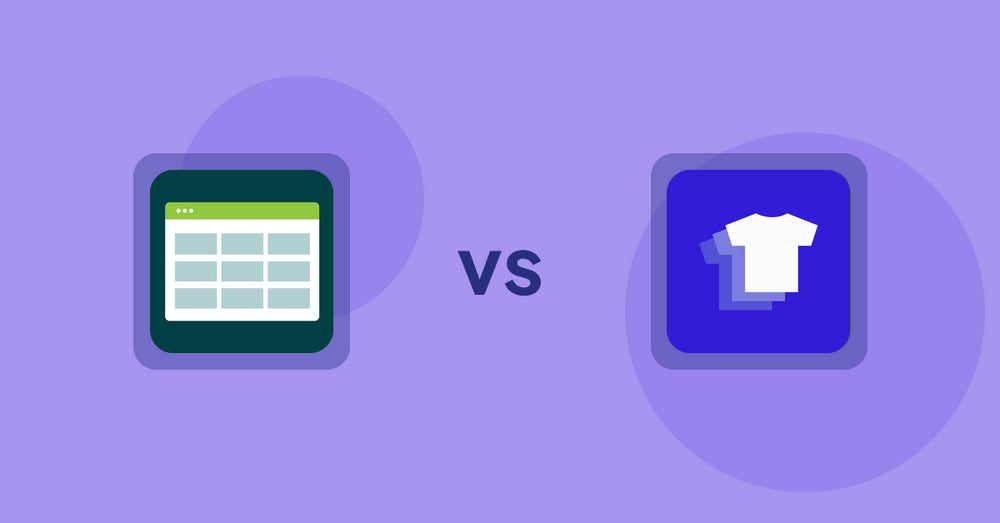
Shopify Product Display Apps: Product Table vs. Xpander
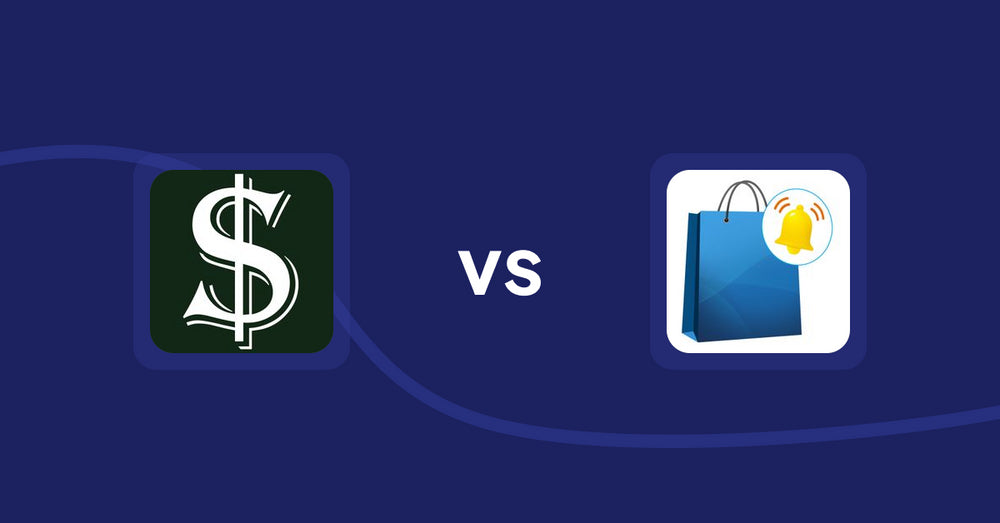
Shopify Product Display Apps: Selling Fast vs CartBar ‑ Product Purchase Bar
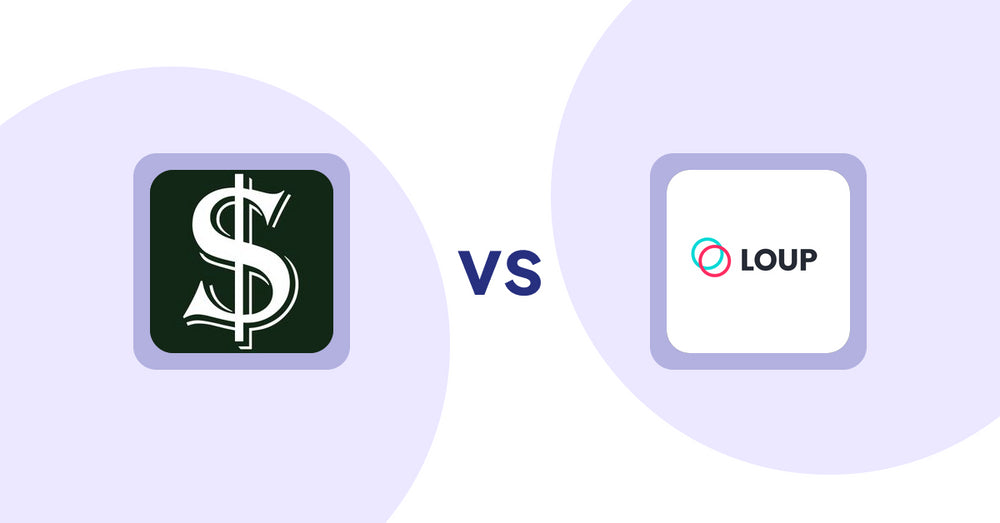
Shopify Product Display Apps: Selling Fast vs. Loup: Sell on Instagram
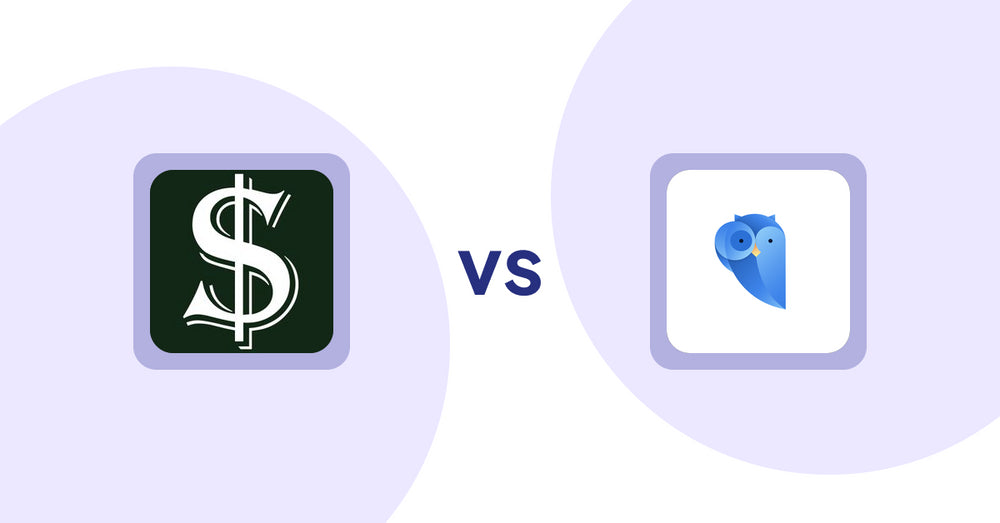
Shopify Product Display Apps: Selling Fast vs. Findify Search & Merchandise
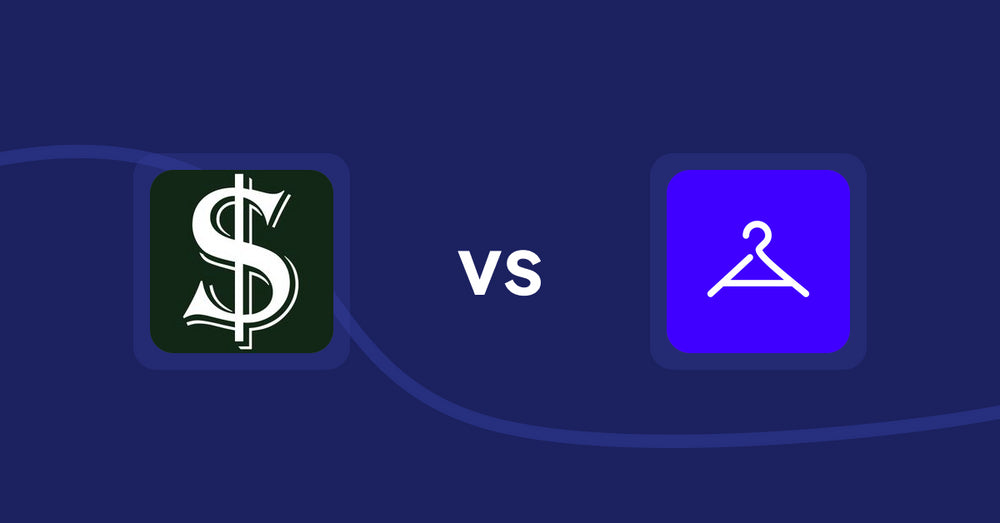
Shopify Product Display Apps: Selling Fast vs. Aiuta
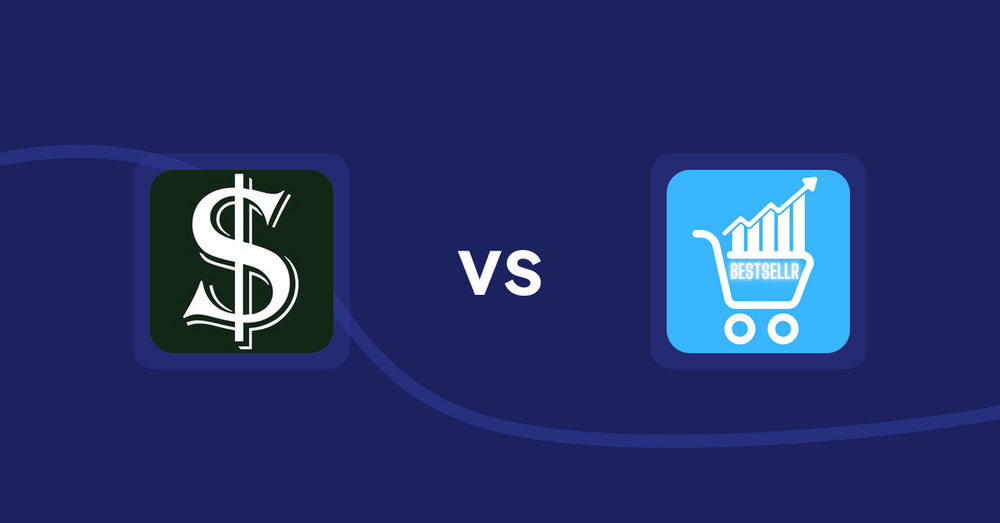
Shopify Product Display Apps: Selling Fast vs Bestsellr
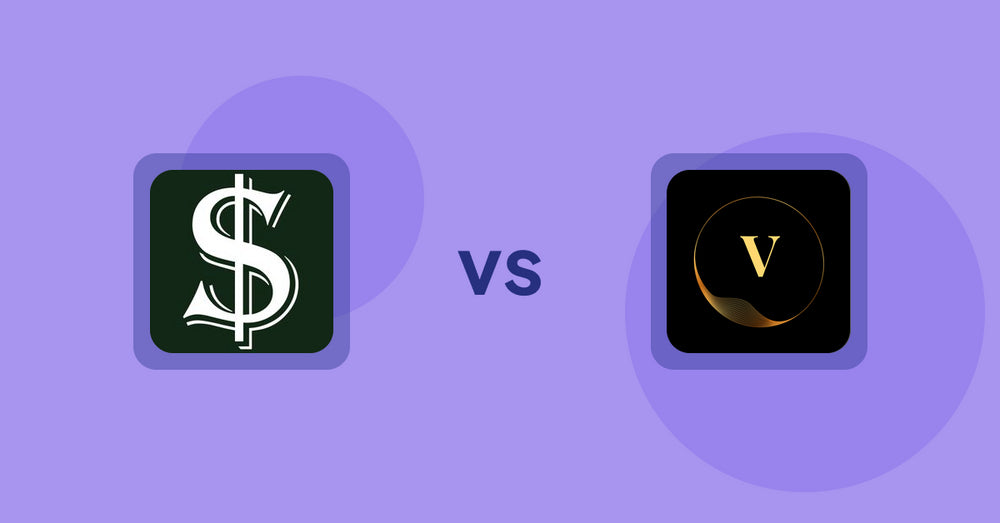
Shopify Product Display Apps: Selling Fast vs ProductTube
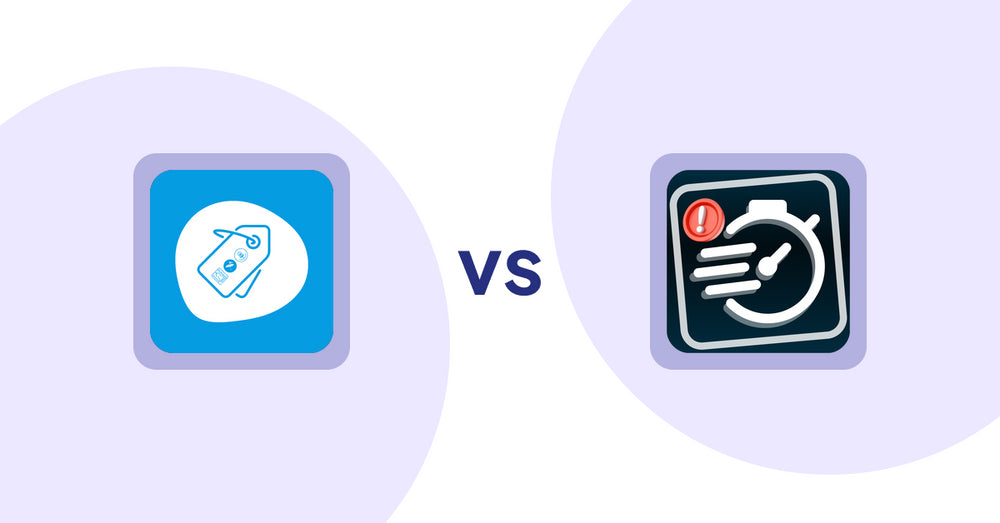
Shopify Product Display Apps: Extendons Product Tag Images vs Urgency! Low Stock Counter
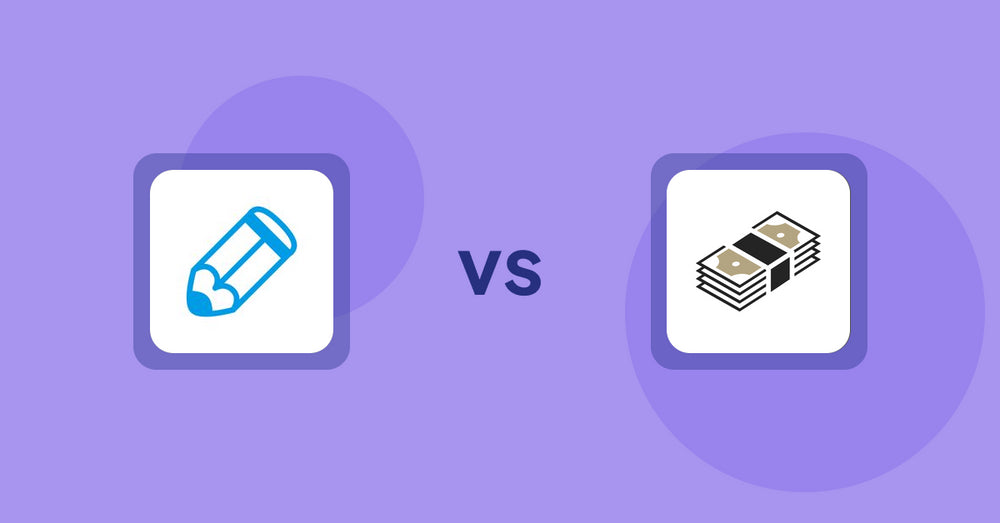
Shopify Product Display Apps: Writer Sofia vs シンプルクラウドファンディング|お手軽自社クラファン
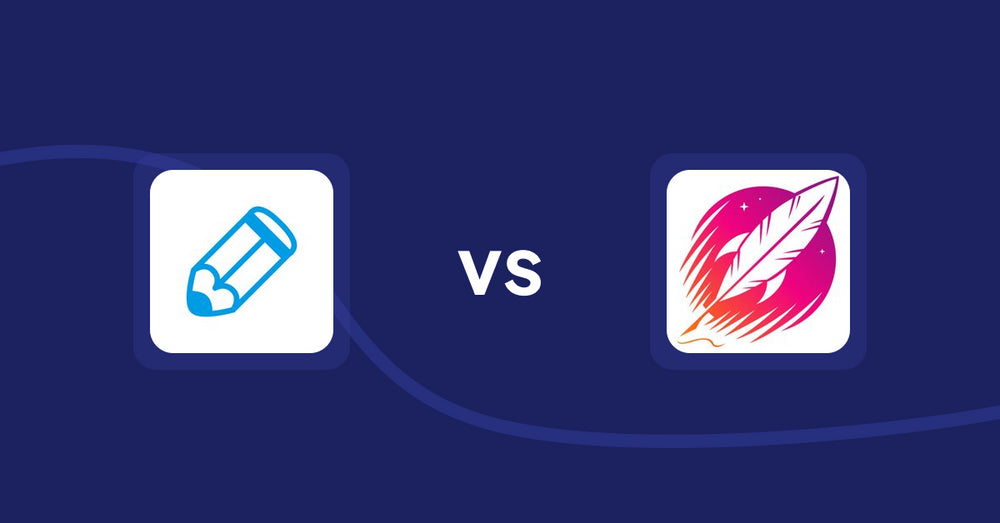
Shopify Product Display Apps: Writer Sofia vs Wordsmith: Content Generator
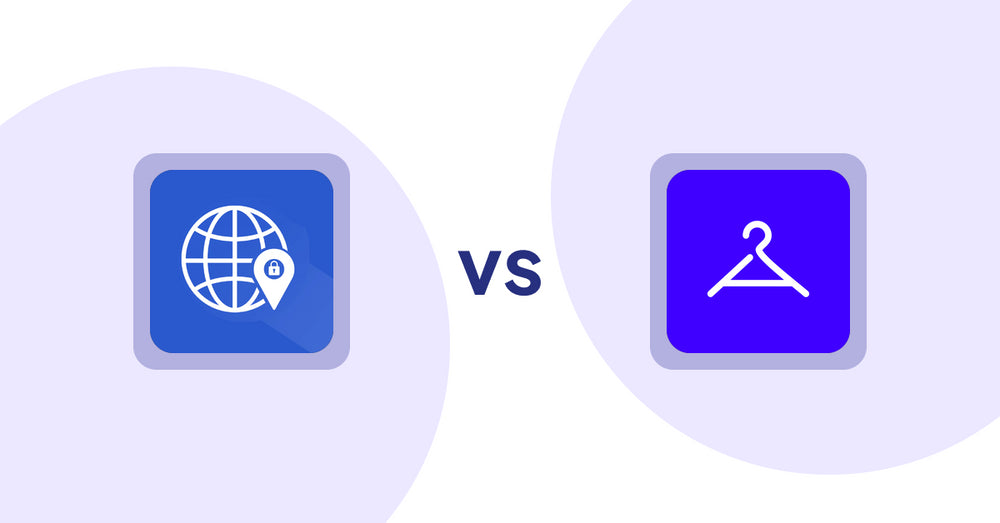
Shopify Product Display Apps: Addify ‑ Country Restrictions vs Aiuta
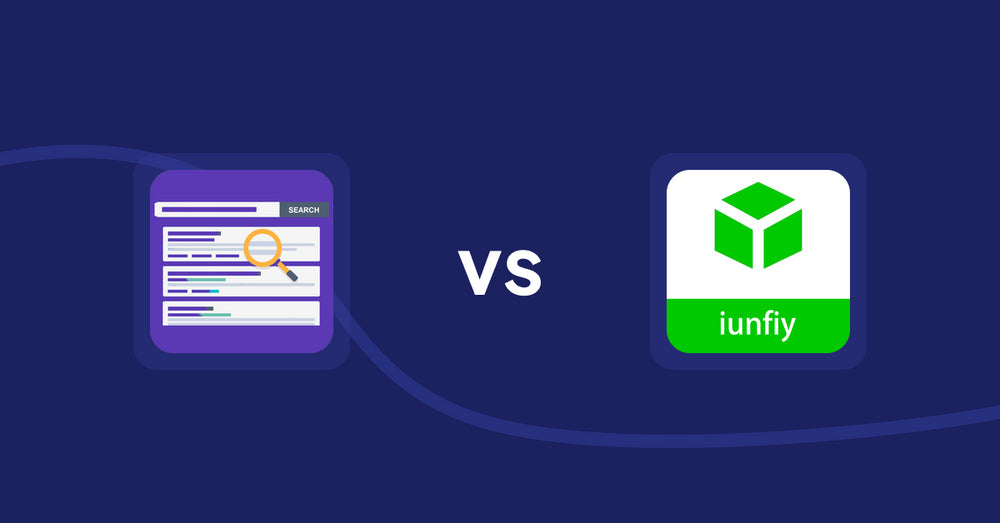
Shopify Product Display Apps: Spark AI Products Description vs iunfiy • Related Products
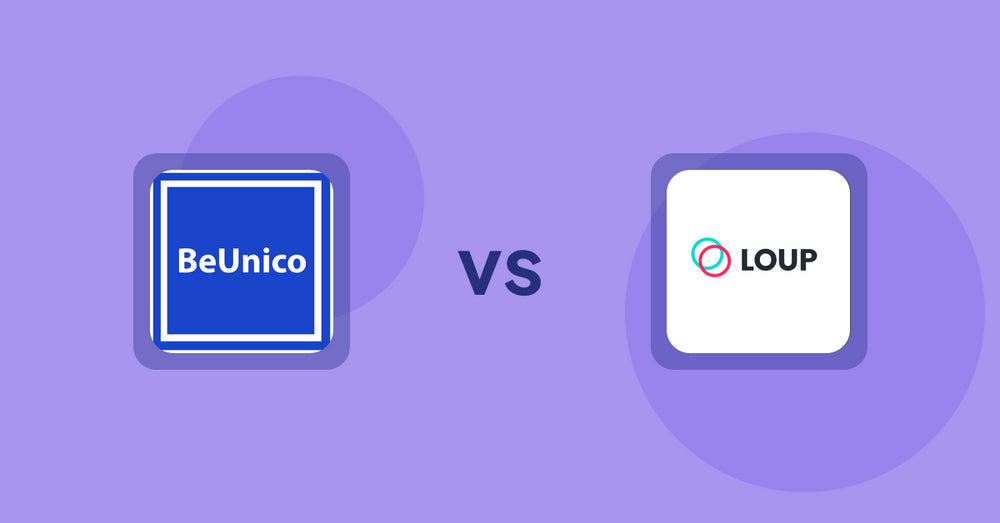
Shopify Product Display Apps: BeUnico vs Loup: Sell on Instagram
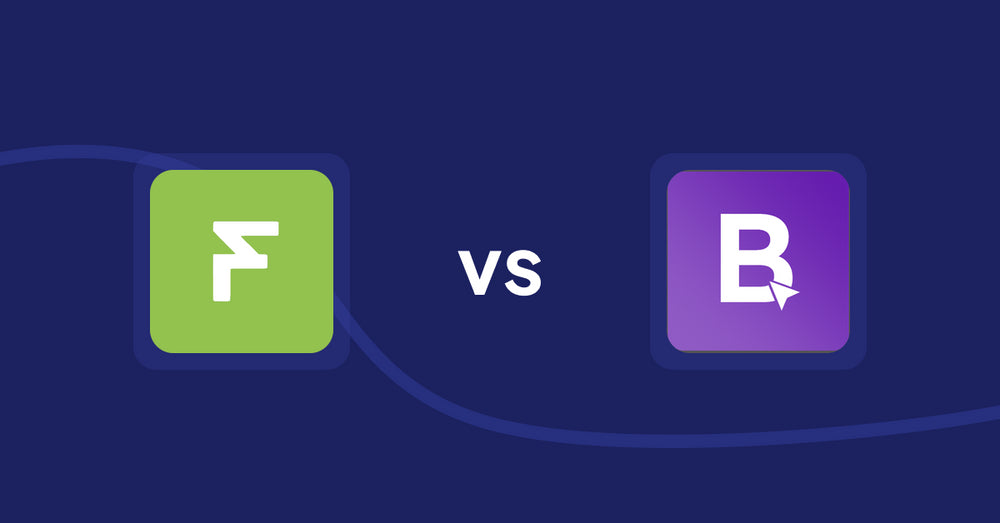
Shopify Product Display Apps: Easy Estimate Shipping vs BookE ‑Rent Property & Service
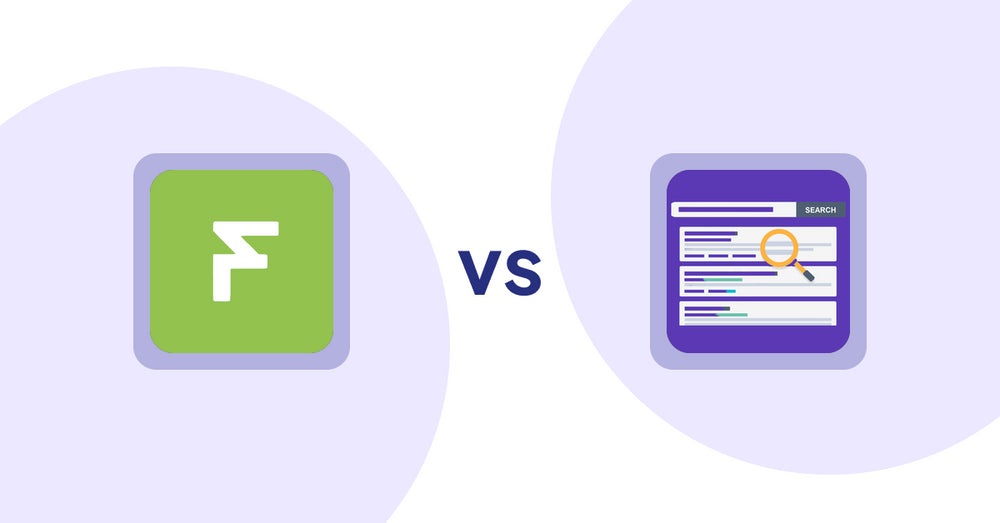
Shopify Product Display Apps: Easy Estimate Shipping vs. Spark AI Products Description
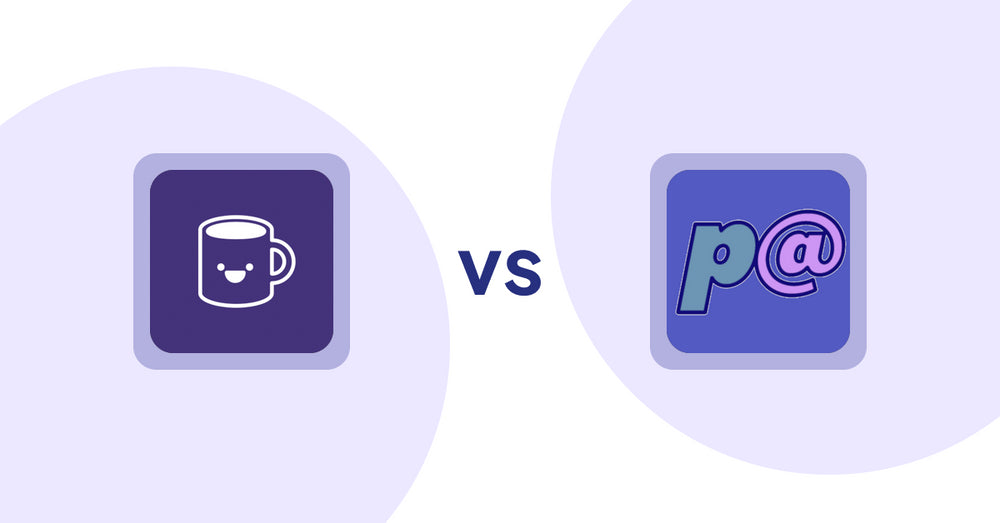
Shopify Product Display Apps: Mugshot Bot vs Parameterizer
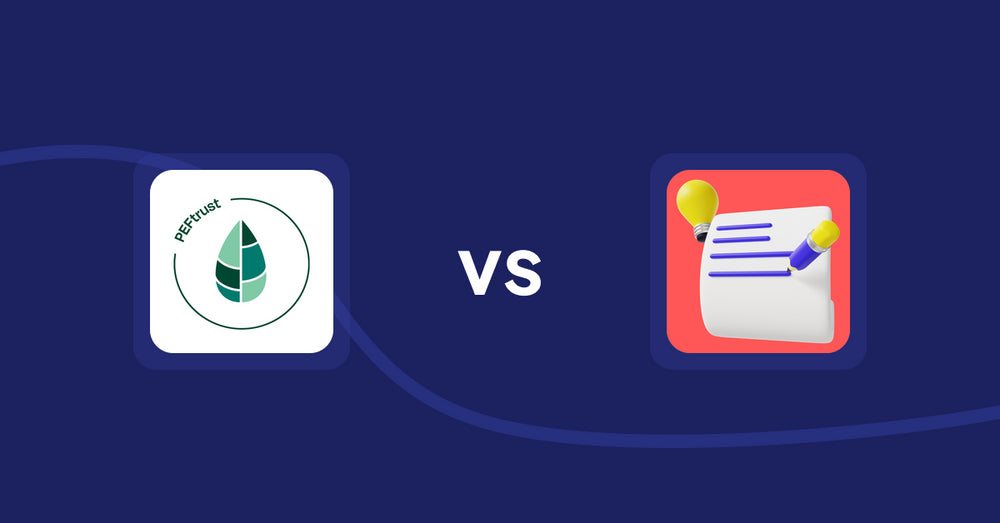
Shopify Product Display Apps: Peftrust vs. Wordo ‑ ChatGPT AI Description
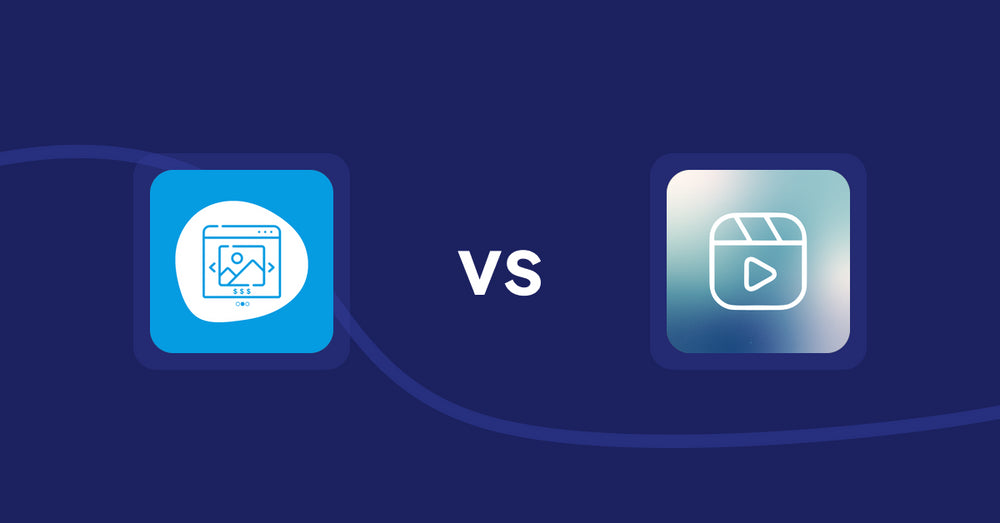
Shopify Product Display Apps: Quick Product Navigator Slide vs Reelify ‑ Shoppable Reel Video
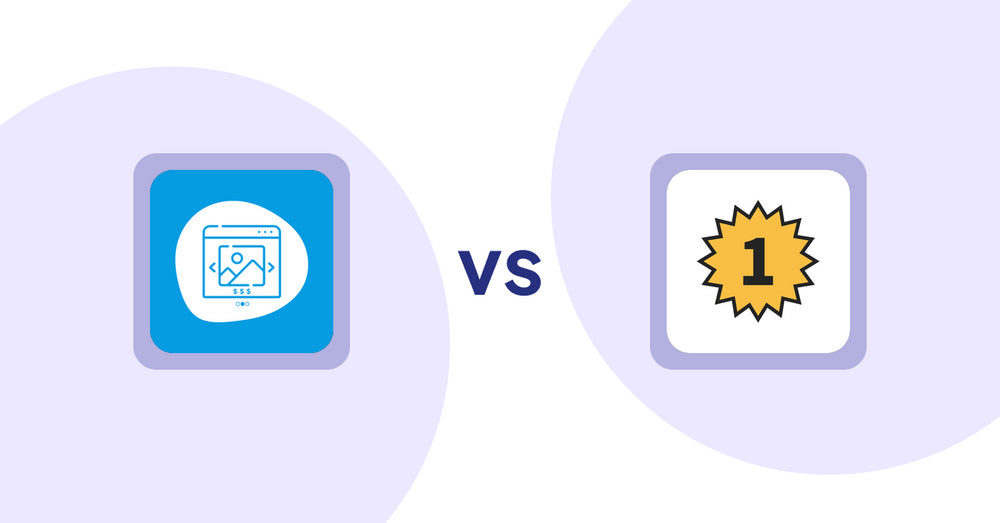
Shopify Product Display Apps: Quick Product Navigator Slide vs. UR: Smart Ranking
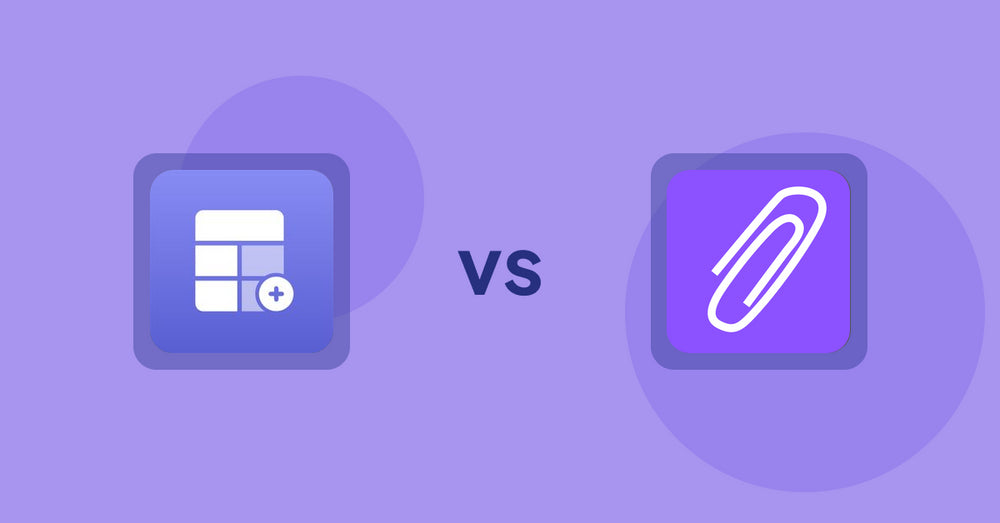
Shopify Product Display Apps: Eazy Specification Tags Table vs Agile Attachments
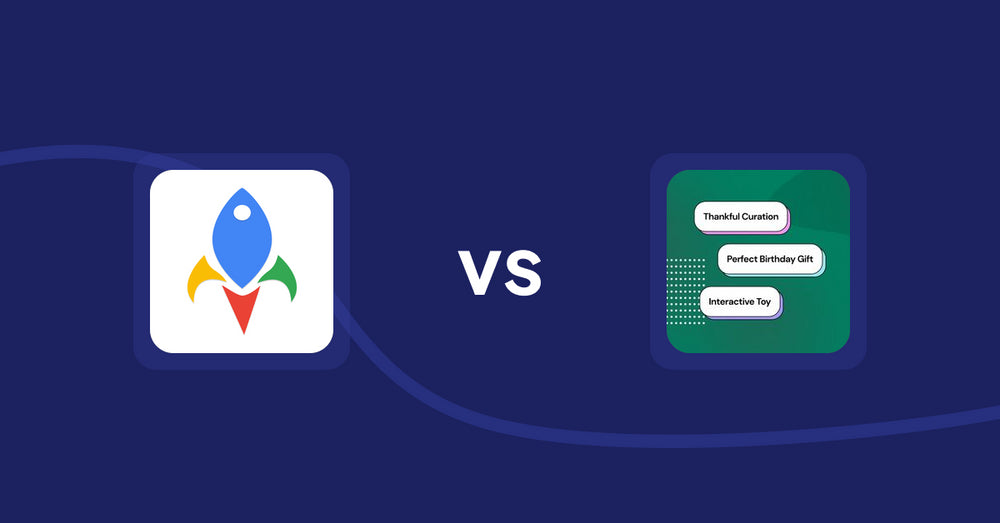
Shopify Product Display Apps: Jedi Back In Stock Admin Alert vs FeatureFrame ‑ Pretty Product
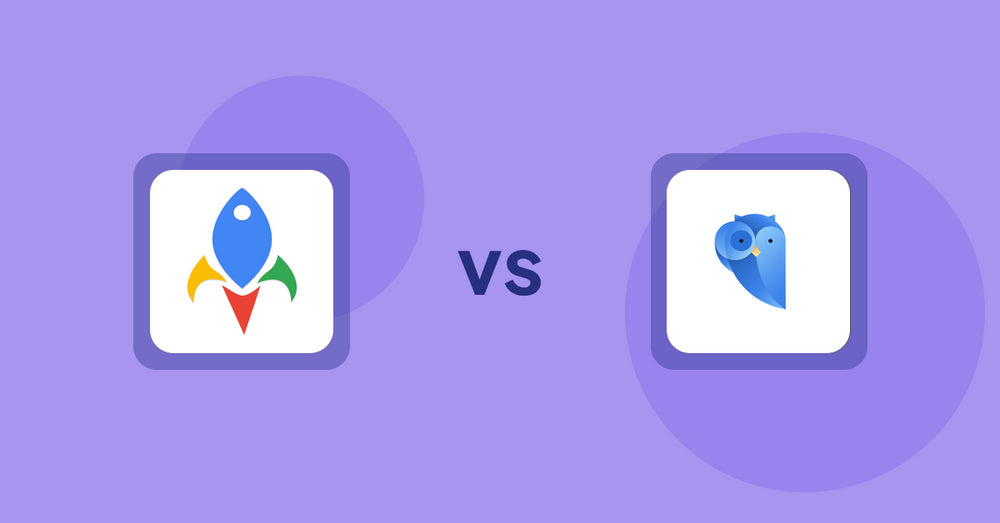
Shopify Product Display Apps: Jedi Back In Stock Admin Alert vs. Findify Search & Merchandise
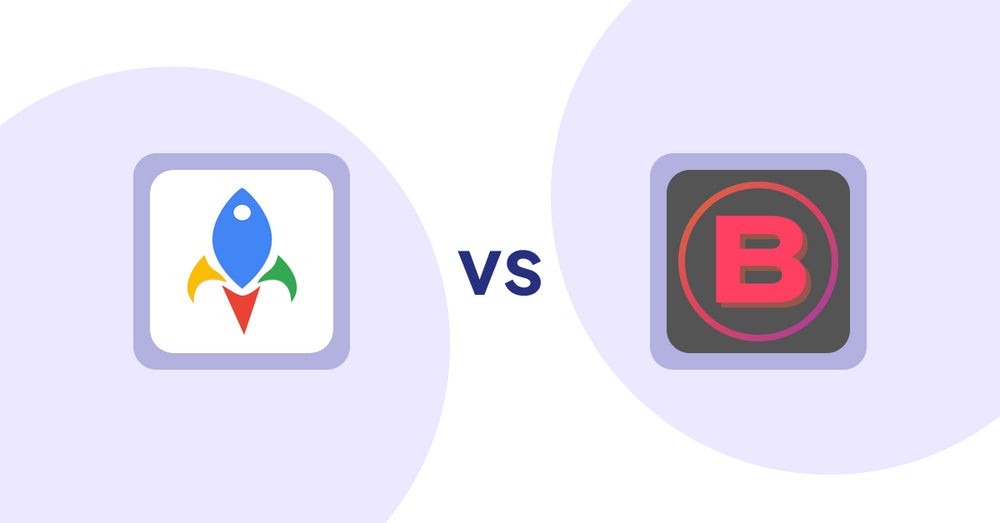
Shopify Product Display Apps: Jedi Back In Stock Admin Alert vs Banter Stories
